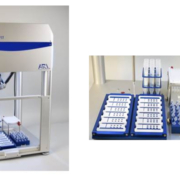Swiss bank Group UBS has raised US$471m (€412m) for the UBS Oncology Impact Fund, which was set up to invest in early-stage cancer treatments. The money raised by the fund, nearly half of which comes from investors in Asia, is the largest amount ever raised for such a cancer investment fund.
ADVERTISEMENT
An expert panel’s final report on the fatal drug trial earlier this year in France states that the death of one of the participants was most likely caused by the drug’s toxicity and not by any violation of the rules.
For up to US$685m (€606m), Dutch ArgenX has outlicensed its human antibody programme ARGX-115 to AbbVie. The pre-clinical immuno-oncology candidate targets a protein believed to contribute to immunosuppressive effects of T-cells.
Despite political disturbances, 2015 was a good year for the biotech scene in Switzerland. Net sales increased by 5.1% to CHF5,133m and 400 additional people found jobs in the sector. As usual, the new numbers were presented at the annual Swiss Biotech Day – which set new records as well.
Early January saw a few indicators that stock markets might deliver some solid biotech results in 2016, even if it wasn’t destined to be a hallmark year for the industry. But then, in the weeks that followed, the situation began to deteriorate. Now it looks like European biotech companies might have to start coming to terms with a closing IPO window.
The Operetta CLS system enables scientists to gain deep biological insight into disease from common assays and complex applications using advanced cellular models, and to identify even subtle phenotypic changes through sensitive imaging and intuitive data analysis.
Art Robbins Instruments has converted – together with the American company SciGene – the Scorpion workstation to automate MicroFISH slide preparation.
Plant breeding innovation is an impressive story to tell. A hundred and fifty years ago, Gregor Mendel discovered the basic principles of inheritance of traits. His laws were widely ignored and only in the 1920s, finally recognised as the fundament of population genetics. So it has only been a good 100 years that we have properly understood how to improve crops no longer randomly but in a targeted manner.




